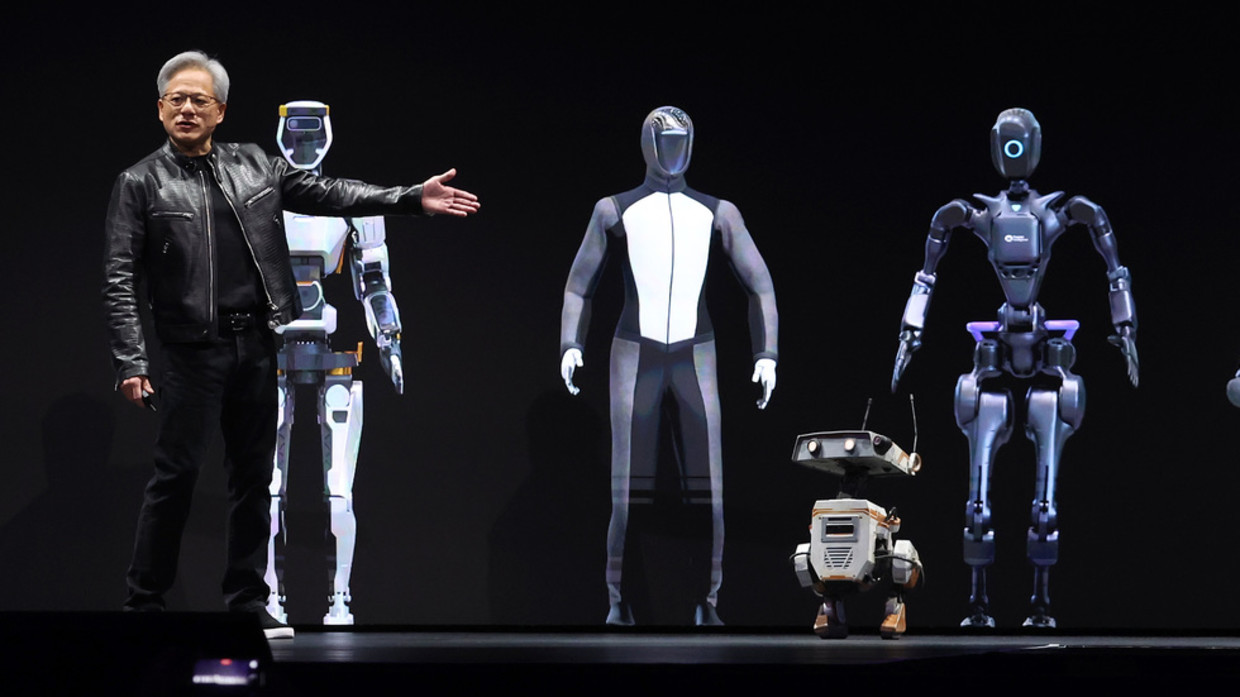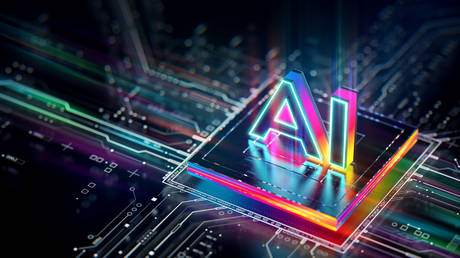NVIDIA has announced a new AI project aimed at creating “humanoid robots” that are capable of learning new skills and solving complex tasks by studying human behavior.
In a press release on Monday, the company also unveiled a state-of-the-art computing platform called Jetson Thor, which is specifically designed to be used by the humanoid robots. Several significant upgrades to its Isaac robotics platform were also announced, including generative AI foundation models and tools for AI workflow.
The new project is called GR00T, which stands for Generalist Robot 00 Technology. It’s intended to serve as a platform to enable robots to “understand natural language and emulate movements by observing human actions – quickly learning coordination, dexterity and other skills in order to navigate, adapt and interact with the real world,” the US-based company said.
In a keynote presentation, NVIDIA founder and CEO Jensen Huang demonstrated several real-life robots already using the GR00T platform to complete a variety of tasks, and showed that the robots could also develop their skills through a digital twin in the newly announced Isaac Lab virtual reality simulation.
“Building foundation models for general humanoid robots is one of the most exciting problems to solve in AI today,” said Huang. He added that “the enabling technologies are coming together for leading roboticists around the world to take giant leaps towards artificial general robotics.”
Agility Robotics co-founder and chief robot officer Jonathan Hurst also announced a partnership with NVIDIA, saying such advancements in the field of AI will pave the way for robots, such as his company’s Digit, to help people “in all aspects of daily life.”
Last year, Huang stated that AI was bound to transform the corporate landscape and change human jobs forever, and warned that those who failed to embrace this technology would be left behind.
Meanwhile, a recent Washington State University survey has found that about one-third of American workers are concerned that AI will soon make certain jobs obsolete, while nearly half fear they could be left behind in their careers if they fail to keep up with how to use the technology in the workplace.
The dangers of AI have also been highlighted by a number of researchers and tech luminaries such as Tesla CEO Elon Musk and Apple co-founder Steve Wozniak, who last year signed an open letter demanding a temporary moratorium on “giant AI experiments” to allow for the creation of guidelines to prevent misuse of the technology.


